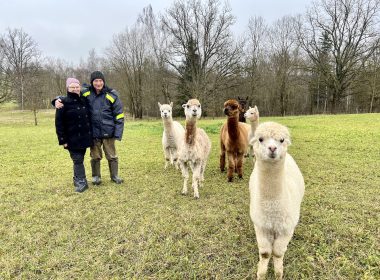It’s not easy being a translator or interpreter. Sure, it isn’t dangerous, except if you work in eastern Ukraine, Syria or similar high-risk zones, or happen to be whispering in the ear of a political leader who’s being assassinated. But, fortunately, for most of us, life’s much safer.
As with any profession, translation seems to be a mystery to those on the outside. Why else would someone who has taken weeks to write a piece expect it to be translated in hours? And pay a reasonable price! But, one ever-lurking pitfall is that your mistakes can be very embarrassing. One of the best known is when President JF Kennedy announced himself as a jam doughnut (ein Berliner) rather than a person from Berlin (Berliner). But even the subtleties of that case are argued over, maybe it wasn’t as embarrassing as it first appeared. That can’t be said for President Jimmy Carter’s gaffe when, amongst other things, he told the Polish nation (in then Communist Poland) that he wanted to sleep with them.
Now those were pre-written texts, there had been at least some thinking time. Jump to today’s White House. You’re tasked with rendering Donnie J Trump’s wandering, multi-subject sentences into German for, say Angela Merkel (I know she speaks English, it’s just an irresistible example). Tremendous, Unbelievable!!!
But this is Life in Riga, so let’s hone in on Latvia’s capital, whose symbol is, errmm, a golden cock. So there’s our first challenge staring us in the face – no, don’t be stupid, not that sort of cock! See, you have to think on your feet. By the way, speaking of the Merkel family, has anyone asked Angela if she is related to Garlieb Merkel, who set us Latvians and Estonians on the road to nationhood in the Enlightenment era? And after whom Riga’s Merķela iela, by the station, is named.
As it happens, I have a great advantage as a translator, I am, to all intents and purposes, bilingual. I’m not bragging, it’s simply how the jigsaw pieces of my life fell into place. I was born and raised in Yorkshire, educated and worked in the UK and Australia. But I grew up in a Latvian family, had various roles in the then exile-Latvian community, married a Latvian and brought up the owner of this blog and her sister as Latvians. We came to Latvia nearly 22 years ago, since when, I have been translating. Not just when working as a freelancer, but even when I had ‘real jobs’, translation/interpretation was unavoidable and ever present.
In English terms, I’m a native speaker, most of what I read is in English, I mostly listen to BBC radio via the internet, watch English-language films and TV. As I’ve had very little formal Latvian education, I limit myself to translating from Latvian into English. In the other direction, local Latvians have the native-speaking advantage over me – the difference between the Latvian I grew up with (1930-40s vintage) and today’s version is also a factor. Oh, and it pays better, because there’s less competition.
There’s quite a bunch of us here doing more or less the same thing, working in different ways. I started a company, now a micro-enterprise, most are self-employed individuals. A few, more ambitious (younger) colleagues have even launched agencies. We meet from time to time and, inevitably, the subject of translation errors comes up. Reaction fluctuates between laughter (frequently hysterical) and despair. Despair that people have spent money (including my taxes!), usually with good intentions, but have not had the nous to get someone to check their translation. And I am not talking about huge amounts of text and money, quite often it can be a sentence or a phrase and any native speaker could have prevented the disaster. But it seems that we are very hard to find as some of the examples below show.
Grey peas (pelēkie zirņi) are what got me thinking about this article, when, in a recent Facebook exchange with said native speakers, some laughable favourite clangers were bandied about. One friend mentioned her favourite menu item being “grey pea balls”. I am still not sure whether she was insulting me (and how does she know?), but the real point is that Latvian ‘grey’ peas are actually brown – why is that? They are delicious, the local equivalent of mushy peas, but served with chopped bacon and onions (and a glass of kefir, to prevent potentially noisy, noisome side-effects). As they are a very traditional Latvian dish, it’s good to see some culinary experimentation with grey peas, but they remain stubbornly brown. And going back to translation issues, how do waiting staff explain to suspicious foreigners that their peas haven’t changed colour?
Sticking with menus, my personal favourite, which I couldn’t resist ordering, was “Lamb in potty”. For English speakers living in Latvia, the following may explain a lot, for we have struck Latvians’ love of diminutive affixes: why call Maija that, when you can express your fondness by saying Maijiņa. Everyday Latvian is replete with such excessive affection, to the extent that it becomes meaningless. Considering our “Lamb in a pot”, for that is what it is, it would not occur to a non-native speaker that translating the diminutive of pods (pot) in jērs podiņā means that it is being served in a toddler’s loo. Simple, eh? Oh no, this is actually a double-edged sword, because in Latvian the non-diminutive form pods is a common euphemism for toilet, so you can understand the reluctance to use “pot”. Now do you believe me about translators’ pitfalls?
Staying in the toilet, ours at home has a few ‘humorous’ items on the wall – where else to put them? The one that consistently raises a laugh is the label of a can of processed meat – “Language in Jelly”. I can just envisage the marketing department (this is pre-Google Translate he said, tongue-in-cheek) debating which of the meanings of mēle was the appropriate one. As with most marketing decisions (I know, I was a marketer), the pin held by the CEO hit the wrong option.
Something similar happened in the upper reaches of the Daugava River where a huge sign (public, i.e., my money) announces that you’re looking at the “Daugava Spring Onions”. You look down, and the river is pretty wide, certainly no spring, and where the hell are the onions? One small word, such huge responsibility – oh you loki! In Latvian, you are looking at Daugavas loki, ‘bends’ in the Daugava river. Admittedly, this is an uncommon, possibly dialect use of the word loki, whose most common meaning is, yes, you guessed it – spring onions. But come on, really, did not someone, somewhere in the long chain of designing and manufacturing that sign, ask the question – are you sure it’s spring onions? I despair.
But the one I really despair about is in Riga itself, particularly because it’s a good cause that’s embarrassed itself and our country by its lack of professionalism. During the Second World War, Latvia’s Jewish population was, in essence, wiped out. There were several massacres, and many Jews were shipped to death camps. Some Latvians were involved, and subsequently, Latvia has been unable to counter the bad PR offensive painting us all as a nation of anti-Semites. That we are not is clear, and our outstanding example of this is Žanis Lipke, who risked his own and his family’s lives to save many Jewish people. There is a Lipke Museum on Ķīpsala, on the very site he hid the fugitives. He was not alone, and the NGO that runs the museum must have spent a serious amount of money to research the other rescuers, get their addresses, get planning permission to place plaques in the pavement outside those addresses, commission an artist to design the plaques, manufacture them individually and position them. So why oh why didn’t they get someone to check the abysmal English translation?
Sorry to finish on that despairing note …
But I will point out that this is not one-way traffic. We went to see Manchester by the Sea last week (speaking of despair, but still well worth seeing), and the phrase which explains the whole film was incorrectly translated in the Latvian subtitles – aargh! And then this pop-up ad accosted me on The Guardian football page of all places. It was a Latvian advertising agency offering its services in English – very poor English. I’m giving them the benefit of the doubt and assuming this was a deliberate, thought-out strategy, after all, I clicked on it. Oh, and if you ever bump into me, ask me about “chips for your tea” at Dailes teātris.
And I haven’t even mentioned ‘false friends’ (of the linguistic variety).
Enjoyed this post? Continue with 16 Amusing Uses Of English in Latvia!
Juris Benkis kindly contributed this post. He’s a translator-extraordinaire and father of Lelde Benke, one of the founders of Life in Riga.











